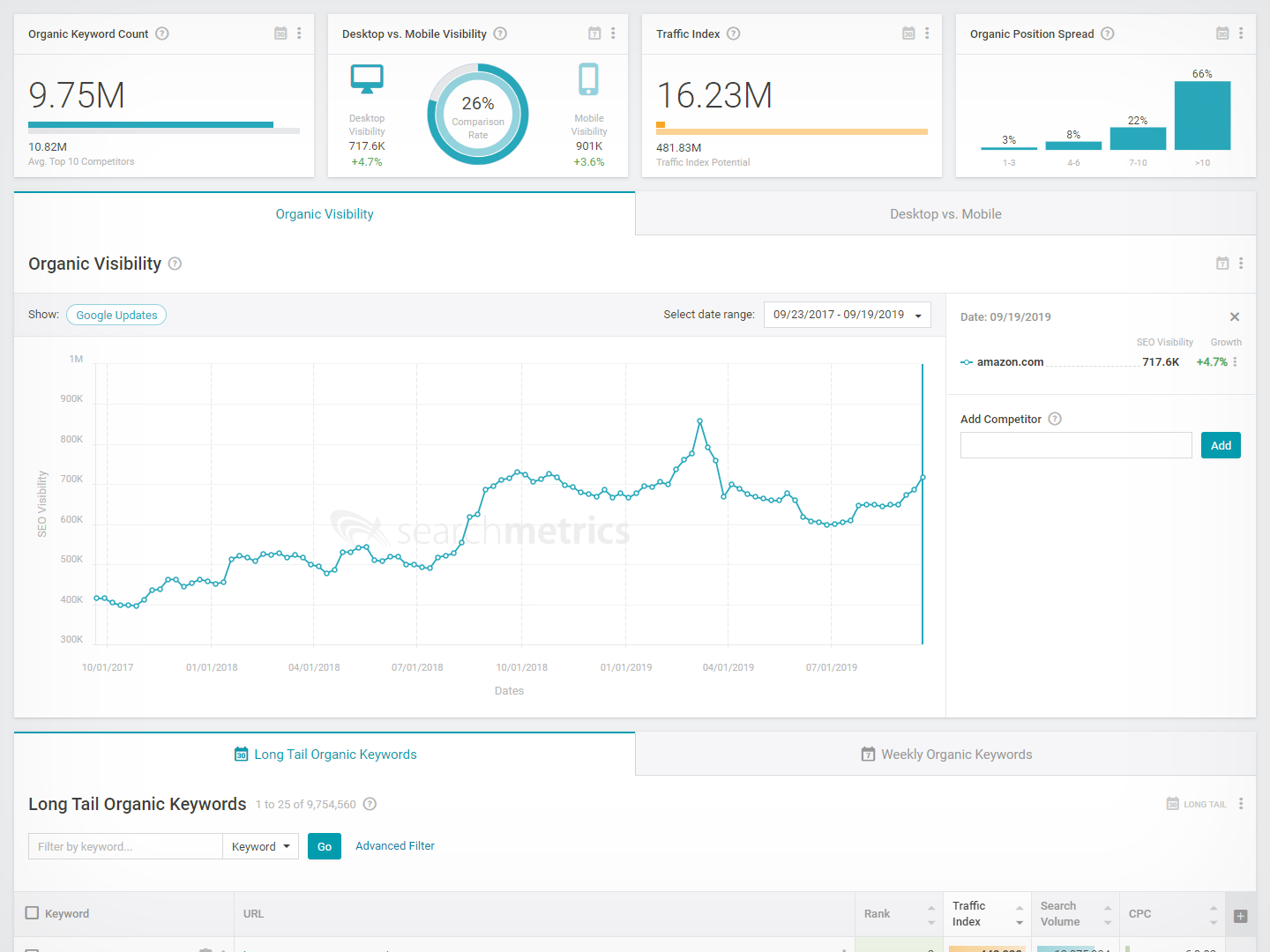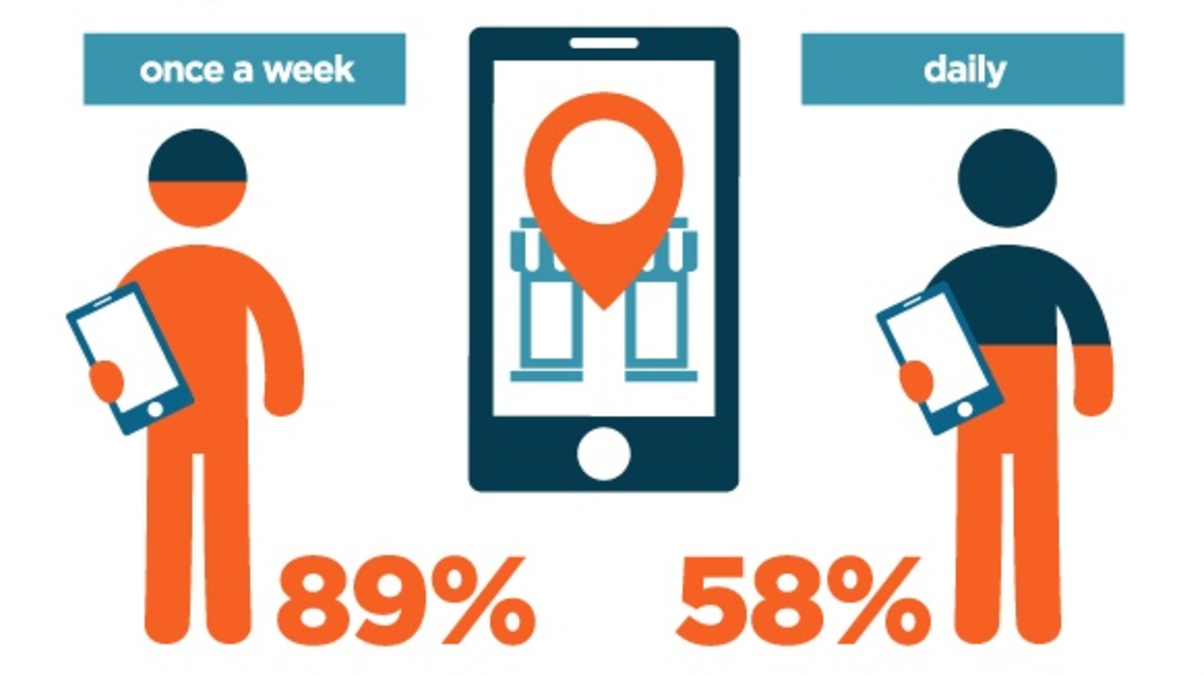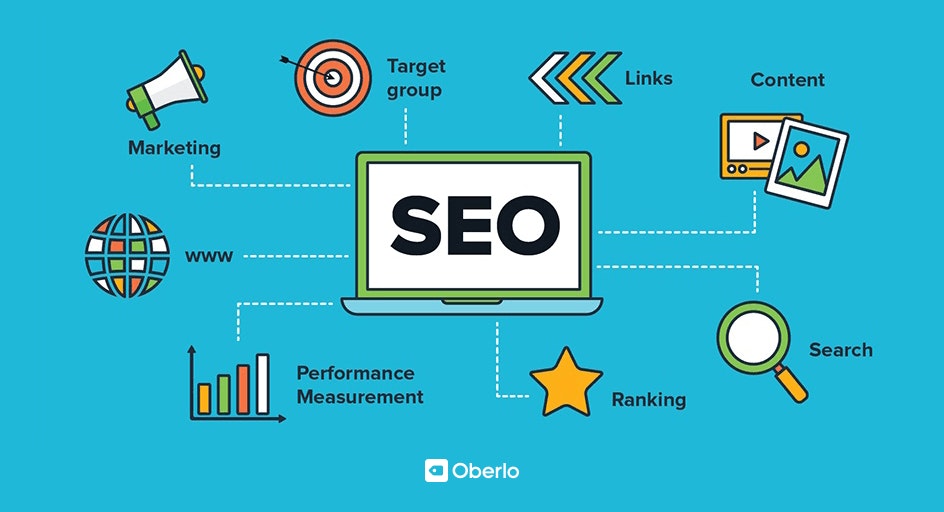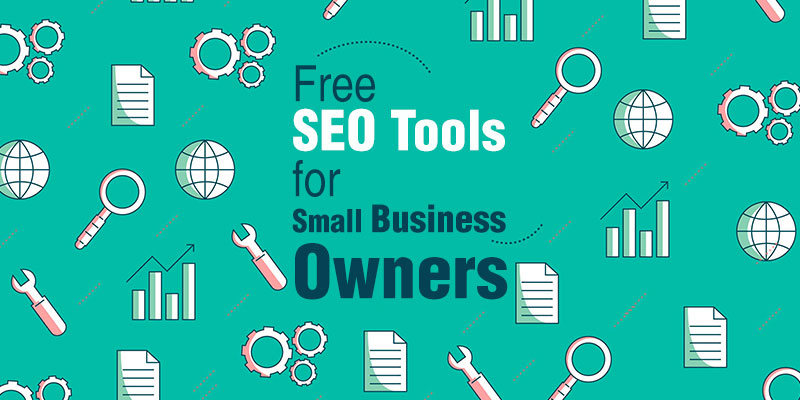Small Businesses, who are looking for local establishment, can do business listing auditing, citation clean-up and get aware of local ranking factors with Moz Pro and Moz Local. Moz Local is probably the best way to audit your businesses’ name, address and phone number (NAP) and fix it for ranking higher in the search engine list. It is an important marketing tool for small businesses helping create awareness and engagement with specific content. Landing pages prompt visitors to provide data through different call-to-actions in exchange for information, which can result in a significant increase in conversions.
- Best Seo Tools For Small Businesses In 2017 Free
- Best Seo Tools For Small Businesses In 2017 Philippines
- Best Seo Tools For Small Businesses In 2017 2020
At this point it has really come down to a choice: join the giant snowball effect which is SEO or get buried under the avalanche. 2017 is the year for your small business to finally put search engine optimization at the top of your to-do list.
With the following beginner’s guide, we intend for you to walk away with a solid understanding of SEO and the latest approaches for your website.
HOW IT ALL BEGAN
Step back in time.. Not too far, only a couple of decades ago.
In the early ‘90’s, basic search engines began emerging on the web. Yahoo was unveiled in 1994 with Google following shortly after in 1996.
For a short while the internet was like the Wild West. It was “anything goes” in order to rank in search engines and webmasters would participate in a conglomerate of shady practices.
It didn’t take long for Google to begin rolling out tweaks to their search engine algorithm, the first one in 2000. Their focus was always to put searchers first – not the websites trying to rank.
Consequently, businesses and organizations across the world fell at the feet of Google and search engine optimization began evolving into a valuable service.
THE KING OF THE WEB
While today Google isn’t the only search engine out there, it’s clear they’re doing something right with over 75% of the search engine market share.
[su_frame align=”center”]
[/su_frame]
Each year, Google is estimated to make around 500-600 changes to their search engine algorithm. And if those aren’t hard enough to keep up with, new changes certainly aren’t announced on a loudspeaker.
Occasionally Google will give us some insight, but the details of their algorithm are a bit foggy and mysterious.
SEO FUNDAMENTALS

First, let’s make it clear what SEO actually is.
⭐ Search engine optimization is a methodology of tactics focused on improving a website’s rank in organic search engine results.
Organic search engine results are different from Google paid ads in that they aren’t labeled as ‘sponsored’ and they aren’t directly paid for.
[su_frame align=”center”][/su_frame]

Ranking high in organic results is a focus for most large and small businesses because users tend to choose organic over paid.
And why wouldn’t they? Wouldn’t you rather select a result that has earned it’s way there because of relevancy rather than paying for their spot? It does seem like the website would be more likely to have what you’re looking for.
In a report from SimilarWeb, users on desktop clicked organic search results 94.95% of the time and paid only 5.05% of the time.
[su_frame align=”center”][/su_frame]
Now that you understand what SEO is and why businesses favor the organic route, let’s explore the approaches used in SEO.
SEO METHODS
Indeed it is true that SEO is ever-changing. Even so, there are a group of best practices that remain at it’s core.
The Right Keywords
⭐ Keywords: The words or string of words that users enter into a search.
It’s no secret that SEO involves keywords. The kinds of keywords to target is what has changed.
In the good ol’ days, all you’d have to do to rank for ‘maine pizza’ is add a few pages to your website that include that keyword.
As more websites emerge and target the same keywords, ranking for them becomes very competitive. Now, even in the small state of Maine you’d have to compete against 21,700,000 other search results trying to rank #1.
Luckily, Google has grown smarter in regard to keywords. Spiders actually understand synonyms, variants, entities, and related keywords.
⭐ Spiders: Programs used by search engines to “crawl” and index the content on websites. Also referred to as bots and crawlers.
Ranking in 2017 takes a little creativity and smart targeting on our end as well.
1. Long tail keywords.
Long tail keywords consist of a string of keywords that make the search more specific. For example, competing for ‘shoes’ will be extremely competitive, if not impossible.
[su_frame align=”center”][/su_frame]
If you string together multiple keywords to form a long tail keyword, your chances of ranking greatly increase. Another benefit is that searchers using the long tail keyword have narrowed in on what they want and are closer to making a purchase.
[su_frame align=”center”][/su_frame]
2. Local keywords.
Like long tail keywords, local keywords cut down on your competition.
Google seems to like websites with local ties because that means the businesses are real and have a physical location. This contrasts with spam websites who don’t want to be tracked or can’t maintain a local presence for all of their different websites.
3. Intent-driven keywords.
With keywords getting longer and more specific, it’s important to consider the intent of the searcher who’s using them. If you’ve targeted a vague keyword without doing this, it’s quite possible you’ll never rank because users aren’t looking for your small business to begin with.
Imagine you own a cat adoption agency. Are users searching the keyword ‘cute maine coon cat’ looking to adopt Maine Coon Cats?
[su_frame align=”center”][/su_frame]
Simply search the keyword into Google and the answer is clear: these searchers don’t want the whole cat, they just want pictures and videos.
High Quality Content Production
Where are you going to use all of these wonderfully unique keywords you have chosen? In your content of course.
Each piece of content your small business creates is a new opportunity to rank in different search queries. Potential customers are asking their pre-purchase questions in search engines like Google, it’s up to you to have content available to answer them.. Or your competitors will.
While it’s true the more indexed pages your website has the more likely you are to rank, you should never sacrifice quality for quantity. The entire point of your website is to convert users and poor content won’t do that.
Increasing Trustworthy Backlinks
⭐ Backlinks: Links from other websites to your website pages.
Backlinks remain a significant ranking factor in 2017 just as they have for years. It doesn’t look like they’re going anywhere anytime soon.
Unfortunately there’s still no shortcut for procuring backlinks – unless you want your website to get banned (more information on this later).
To increase your backlinks your small business needs to go about it the old fashioned way: producing content that people actually want to share and link back to.
Try interviews and guest bloggers to grow your backlinks, this will introduce your business to a whole new audience.
Sharing your content across different social media channels is crucial for this. It will increase your exposure, draw more traffic to your website, and consequently grow backlinks.
Responsive Web Design
Google themselves have made it clear multiple times that they prefer mobile-friendly web design over non-mobile-friendly websites.
It isn’t a mystery why. Websites that are non-responsive or non-mobile-friendly do not display correctly for users on different screen sizes than they were designed for. Sometimes, the website is completely unnavigable or won’t display at all.
Google wants searchers to be happy with search results and since 80% of internet users own a smartphone, most of them would be very unhappy to continue entering glitchy, non-responsive websites.
Unsure if your current web design is responsive? Click here to use Google’s mobile-friendly test for your website.
Fast-Loading Website
As we’ve mentioned above, Google wants to connect searchers with websites that have great user experience. A laggy, slow website is the polar opposite of great user experience.
Website speed has been part of Google’s search algorithms since 2010. This is one factor that they made quite clear in their Google Webmaster Blog.
Click here to test your website’s speed in Google’s PageSpeed Insights tool.

THE SHIFT IN 2017
We’ve already reviewed SEO approaches that seem to have been grandfathered into 2017, what about the brand new ones?
Best Seo Tools For Small Businesses In 2017 Free
Thorough Content
Randy Fishkin, the founder of Moz, explained recently that Google seems to be weighting “content comprehensiveness” in their algorithm.
This makes sense as most websites have already jumped on the content bandwagon and are pumping out blog posts. Now Google has to step it up a notch to continue weeding out that horrid “thin” content.
What does this mean for small businesses? Instead of publishing as many blog posts as possible and potentially sacrificing quality, try writing longer pieces that explain a topic entirely.
Optimize for Voice Searches
A survey from MindMeld revealed that the number of voice searches are growing. Using virtual assistants like Siri, Google voice search, and Alexa instead of typing in queries will have some interesting effects on SEO.
As you might imagine, long tail keywords and more complex “conversational” queries are sure to change popular keywords. These virtual assistants are moving towards allowing complete transactions through voice. You can already order a pizza from Dominos or an Uber ride from Amazon Alexa!
Focus on Branding
SEO leaders have been talking a lot about branding lately. In fact, brand names are actually indirectly included in Google’s search algorithm. A correlation between search queries and keywords prompts Google to boost your website’s brand authority.
Takeaway: You want users to remember your brand name and use it in search queries. This means your small business should be interacting on social media and put in effort to get your brand exposed.
Accelerated Mobile Pages
Accelerated Mobile Pages, also known as AMPs, are clearly in Google’s good graces. Probably because Google backed their creation.
The AMP is a project from Google and other technology companies to speed up content publishing. With a bit of code know-how, you can build your own AMP file and have it load “instantly everywhere”.
Topical Relevance
In the past few years, effective SEO has been moving past traditional keyword optimization to increasing topical authority. This continues to be true in 2017 with the use of artificial intelligence that aggregate various concepts.
It’s easier to understand topical SEO with an example:
Imagine you own a furniture business. You sell couches, chairs, beds, dressers, and tables. In the past, your SEO strategy may have consisted of finding the right keywords to focus on for each category and including them each individual page (5 of them).
Now in order to gain topical relevance, you should use the keywords you’ve found from each category and find keywords for those keywords. For chairs, you’ll want to write 40+ blog posts to target each individual keyword (dining chairs, recliner chairs, leather chairs, aluminum chairs..).
So yes, this means a lot more content.
[ctt template=”1″ link=”bJkrW” via=”no” ]”In order to rank in 2017, you need to prove you absolutely dominate your niche..” @osc_webdesign #SEO [/ctt]
THE DARK SIDE OF SEO
[su_frame align=”center”][/su_frame]
Like we have mentioned previously, there used to be a list of widely used “shady” SEO practices. The purpose of many of Google’s algorithm updates was to weed out these spam websites to make room for high-quality, relevant websites.
Unfortunately some SEO newbies have been blindsided by these updates. Even now, there are companies that will try to con you into purchasing what is called black hat SEO.
[su_frame align=”center”][/su_frame]
There are a couple of things very wrong about the above website.
- The first thing that should alarm you is that they have backlinks for sale. High-quality backlinks will never be available for purchase.
- The second is that they claim your website will be in the top 10 search results within 3-6 months. Legitimate SEO firms never make blanket statements like that. Each website and keyword is unique and there is no way to know for certain you can rank in the top 10 without assessing these different variables.
So how can these black-hat companies claim these things? Well, some are flat out lying. In some cases, they actually can get you ranking high very quickly.
You can count on this kind of high rank to be temporary though. It’s only a matter of time before Google catches on to these get-rich-quick kind of schemes and blacklists the offenders from search results altogether.
[su_frame align=”center”][/su_frame]
This all too familiar tale is told by a small media training business who hired the wrong SEO firm:
[su_quote]I found a SEO firm online with good references and hired them to begin working on our website. Sure enough after a few months we began to rank much better and received enquiries on a pleasingly regular basis. But then the phone stopped ringing.. ..It turned out my SEO company had been using a tried and tested tactic of creating hundreds artificial web links to trick Google into thinking my site was popular. But recently Google had updated its famous algorithm to combat tactics like this, and removed any of the guilty sites from their results.[/su_quote]

HOW TO KEEP YOUR SMALL BUSINESS’S NOSE CLEAN
To avoid a devastating hit from Google’s ever-changing search algorithm, steer clear from the following black-hat SEO techniques.
[su_box title=”Black Hat SEO”]
• Doorway pages: Multiple pages created to rank for specific search queries and then funnel users to a single destination.
• Article spinning: Content all over the web is automatically pulled into a new article and words are replaced with synonyms.
• Hidden text: Keywords or links that are placed all over a website for search engines to pick up but not users. Typically the font is the same color as the background so that it can’t been seen unless highlighted.
• Keyword stuffing: As many keywords as possible are used throughout website content in a way that reads awkwardly and sacrifices user experience.
• Sneaky redirects: Creating a page to be indexed by search engines that isn’t displayed to users, they are instead redirected to a different page.
• Cloaking: When different content displays on a website depending on the user’s IP address (IP addresses can identify a search engine spider).
• Link manipulation: Purchasing links, automated programs to generate links to your website, and other tactics used to manipulate Google’s PageRank.
• Excessive link exchanges: Trading links or partnering with pages solely for links.
• Link farms: A set of pages created only to link to a target page and improve its rank.
• Negative SEO: Using black hat methods like these against competitors in an attempt to get them banned or penalized by Google.[/su_box]
Since there are always new black hat techniques emerging, it’s quite impossible to warn you of every single one. Luckily, you don’t have to know each by name to detect something is fishy.
A good rule of thumb is that anything that promises fast results and specific high ranks (top 10, top 5, #1) is probably spam. Legitimate SEO firms can in fact get you ranking in top 10 and even #1 for specific keywords, but results really are on a case-by-case basis.
WHAT NOW?
[ctt template=”1″ link=”upZc8″ via=”no” ]”The great thing about #SEO is that you don’t have to be a massive corporation with deep pockets to take advantage of it.” @osc_webdesign[/ctt]
Search engines like Google really level the playing field for businesses. SEO is completely scalable depending on your resources.
If you’re a one man band and have the extra time and drive to go the DIY route, there is online education on SEO available to help you do that. When in-house SEO is too expensive, too time consuming, or the expertise is lacking, many businesses choose to hire an experienced SEO firm.
[su_divider]
Whichever direction you determine is right for your small business, the truth remains the same: SEO is a snowball that’s careening forward in 2017. If you haven’t made strides towards optimizing your website for search engines, it’s not too late to get up to speed!
Not every businessperson is an SEO expert. If you want your brand to expand and increase its revenue, the right SEO technique can help you maximize your business profits. If you don’t understand SEO, here are the most popular SEO tools for small business owners that can help you witness faster business growth:
- Google Analytics
Google Analytics is used to track performance of the keywords and how the site visitors interact with it. It is a completely free tool that is used by all small business owners for lead generation, sale conversion, increasing page views and for running a successful SEO campaign. With Google Analytics, you can also get information about your visitors/ customers, for instance, you can get data about their geographical location, devices used, traffic source etc.
- RankSense
If you can’t keep a 24 x 7 eye on your website, then RankSense can help you solve your problem. It claims to give small business owners at least a 15% revenue lift with its constant SEO monitoring feature and ‘SEO scan’ tool.
- Screaming Frog
The free version of this tool can help you crawl up to 500 pages on the search engine list. Screaming Frog is an SEO spider tool that automatically audits your webpages and fixes your site against broken links, duplicate content, server errors, URLs and more. It can also suggest correction of page title and Meta description that help you stay ahead of your competitors.
- MozPro
MozPro and Moz Local are great SEO tools that largely focus upon local marketing. Small Businesses, who are looking for local establishment, can do business listing auditing, citation clean-up and get aware of local ranking factors with Moz Pro and Moz Local. Moz Local is probably the best way to audit your businesses’ name, address and phone number (NAP) and fix it for ranking higher in the search engine list.
- Google Webmaster Tools
Google Webmaster Tools is a must have for getting the best SEO data sources. The tool helps you to fix manual actions, gives you an overview of who’s linking to you and informs you about organic data, keyword impression, traffic data and more. The tool helps you track your site’s performance (Google Console), get support for your site with support documentation and testing tools and more.
- Local SEO Checklist
Local SEO Checklist helps you to optimize your website to the fullest with in-depth SEO local checklist. The tool is categorized with important resources such as:
- On Page – Title Tags, Clean URLs, Duplicate Content, Logos and Images, www and non-www, Webmasters, Google Analytics, Indexible Menus, Nap, City/ Service Page, Blog, Mobile Responsive
- Google Profile – Google+, Google My Business Claim, Accurate Category, Accurate Listing, Logos & Cover Photo
- Schema – Check, Generate and Implement Schema
- Citation – Top 50 Citation, Fix Listings, Niche Specifics, Hyper Local, Competitor Citations, Modify Old Citations
- Reviews – Negative Reviews, Generate Reviews, Make Easy to Review
- Conversion – Call to Action, Phone number, Testimonials
- Social – Twitter, Facebook, Foursquare
- 5 MinuteSite
Best Seo Tools For Small Businesses In 2017 Philippines
The right set of keywords is one of the most important criteria that affect your SEO campaign and subsequently the ranking on the search engine list. The 5MinuteSite is a simple, but a very powerful tool to help you give fruitful benefits of your keyword research efforts. Use regional filters to get the keyword that can exactly target the consumers you are looking for.
- Raven Tools

Best Seo Tools For Small Businesses In 2017 2020
If you want readymade marketing reports for SEO, PPC and Social Media through channels such as Google Analytics, Google Search Console, Google Adwords, and, Social Media platforms like Facebook and Twitter – all at one place, then Raven Tools should save your time and money. The reports are weekly, monthly and quarterly based.
